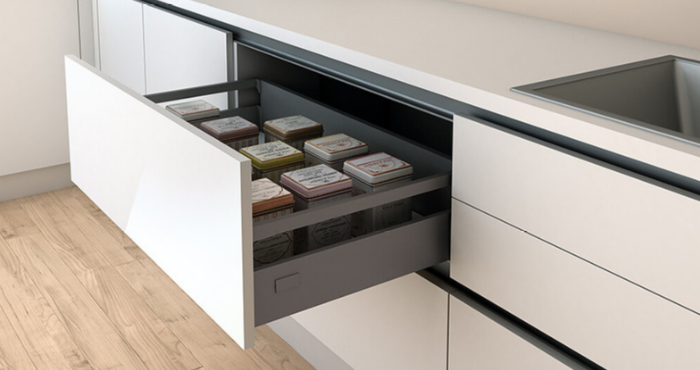Equipping your kitchen effectively involves selecting the right tools, gadgets, and appliances that match your cooking style and needs. Here’s a step-by-step guide to ensure you have a well-equipped kitchen:
Step 1: Assess Your Cooking Needs
- Evaluate Your Cooking Habits: Consider the types of meals you frequently prepare. Do you bake often? Do you cook elaborate meals or prefer quick, simple dishes?
- Consider Your Space: Take stock of your kitchen size and storage capacity. This will help you prioritize what you can realistically fit and use.
Step 2: Essential Tools and Utensils
- Knives
- Chef’s Knife: Versatile for most cutting tasks.
- Paring Knife: For peeling and detailed work.
- Bread Knife: Serrated for slicing bread.
- Cutting Boards
- Wooden or Bamboo: Gentle on knives, good for vegetables and bread.
- Plastic: Dishwasher-safe and ideal for meats.
- Measuring Tools
- Measuring Cups and Spoons: For accurate measurements of dry and liquid ingredients.
- Kitchen Scale: For precise measurements, especially in baking.
- Cookware
- Non-Stick Skillet: For frying and sautéing.
- Saucepan: For making sauces and boiling.
- Stockpot: For soups, stews, and pasta.
- Cast Iron Skillet: Versatile and great for high-heat cooking.
- Baking Sheets and Pans: For baking and roasting.
- Utensils
- Wooden Spoons: For stirring.
- Spatulas: For flipping and mixing.
- Tongs: For handling hot food.
- Whisk: For mixing and beating.
- Ladle: For serving soups.
- Peeler: For peeling vegetables.
- Grater: For cheese, zest, and more.
Step 3: Small Appliances
- Blender: For smoothies, soups, and sauces.
- Food Processor: For chopping, slicing, and pureeing.
- Stand Mixer: For baking, mixing dough, and whipping.
- Immersion Blender: For blending soups directly in the pot.
- Electric Kettle: For boiling water quickly.
- Toaster or Toaster Oven: For quick toasting and small bakes.
- Microwave: For reheating and quick cooking.
Step 4: Specialty Tools and Gadgets
- Garlic Press: For quick garlic mincing.
- Citrus Juicer: For fresh juice.
- Meat Thermometer: For checking meat doneness.
- Mandoline Slicer: For uniform slices.
- Spiralizer: For making vegetable noodles.
- Salad Spinner: For drying salad greens.
Step 5: Storage Solutions
- Food Storage Containers: Airtight containers for leftovers and meal prep.
- Spice Rack: To keep spices organized and accessible.
- Knife Block or Magnetic Strip: For safe knife storage.
- Pot Rack or Hooks: For hanging pots and utensils.
Step 6: Cleaning Supplies
- Dish Rack: For drying dishes.
- Scrub Brushes and Sponges: For cleaning cookware and surfaces.
- Dish Towels: For drying and cleaning.
Step 7: Pantry Essentials
- Basic Spices and Herbs: Salt, pepper, garlic powder, paprika, oregano, etc.
- Oils and Vinegars: Olive oil, vegetable oil, balsamic vinegar, etc.
- Baking Staples: Flour, sugar, baking powder, baking soda.
- Canned Goods and Dry Foods: Beans, tomatoes, rice, pasta, etc.
Step 8: Personal Touches
- Favorite Cookware: If you have a favorite pan or pot, make sure it’s accessible.
- Personal Gadgets: If you enjoy a specific type of cooking, like baking or grilling, ensure you have the gadgets to support it.
- Aesthetic and Functional Decor: Items that make your kitchen a pleasant place to work in, such as a chalkboard for notes or a plant for a touch of green.
By following these steps, you can equip your kitchen with all the essential tools and gadgets you need to cook efficiently and enjoyably.

